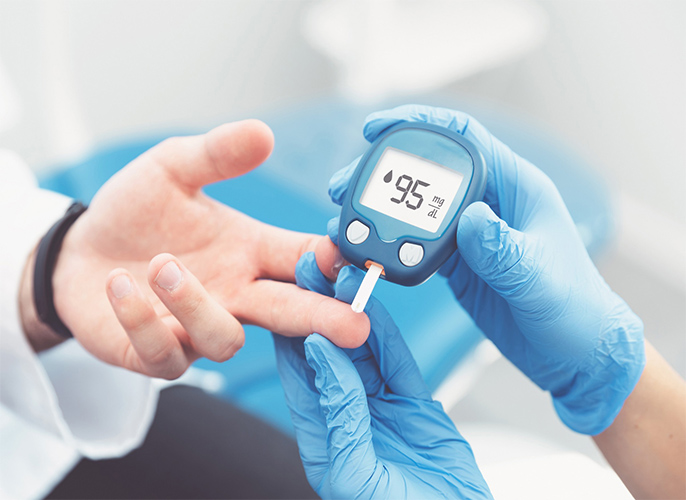Type 1 Diabetes

If you have type 1 diabetes, your pancreas doesn’t make insulin or makes very little insulin. Insulin helps blood sugar enter the cells in your body for use as energy. Without insulin, blood sugar can’t get into cells and builds up in the bloodstream. High blood sugar is damaging to the body and causes many of the symptoms and complications of diabetes.
Type 1 diabetes was once called insulin-dependent or juvenile diabetes, but it can develop at any age.
Type 1 diabetes is less common than type 2—about 5-10% of people with diabetes have type 1. Currently, no one knows how to prevent type 1 diabetes, but it can be treated successfully by:
– Following your doctor’s recommendations for living a healthy lifestyle.
– Managing your blood sugar.
– Getting regular health checkups.
– Getting diabetes self-management education/ training.
Causes
Type 1 diabetes is thought to be caused by an autoimmune reaction (the body attacks itself by mistake). This reaction destroys the cells in the pancreas that make insulin, called beta cells. This process can go on for months or years before any symptoms appear.
Some people have certain genes (traits passed on from parent to child) that make them more likely to develop type 1 diabetes. However, many of them won’t go on to have type 1 diabetes even if they have the genes. A trigger in the environment, such as a virus, may also play a part in developing type 1 diabetes. Diet and lifestyle habits don’t cause type 1 diabetes.
Symptoms and Risk Factors
It can take months or years before symptoms of type 1 diabetes are noticed. Type 1 diabetes symptoms can develop in just a few weeks or months. Once symptoms appear, they can be severe.
Some type 1 diabetes symptoms are similar to symptoms of other health conditions. Don’t guess! If you think you could have type 1 diabetes, see your doctor to get your blood sugar tested. Untreated diabetes can lead to very serious—even fatal—health problems.
Risk factors for type 1 diabetes are not as clear as for prediabetes and type 2 diabetes. However, studies show that family history plays a part.
Source: CDC



